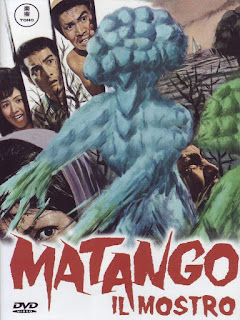Eden by Tim Lebbon
Tim Lebbon is one of the best horror writers who remains unknown to the general public. His best novel, The Silence, is a true classic of apocalyptic fiction, tracing the collapse of civilization in Great Britain after a species of small but voracious bat-like predators is released from a cave. The novel evoked how quickly society can collapse in the face of a new threat while also giving a realistic look at how people react to calamities. (Reading the early sections of the novel reminds one of the early stages of the COVID-19 pandemic, with people brushing the disaster off because it's taking place far away.)
Lebbon's most recent novel, Eden, has a somewhat similar setting, a society on the verge of collapse due to climate change and environmental degradation. However, rather than focus on this slow-motion apocalypse, he focuses on a place that is comparatively sheltered from it - a "Virgin Zone" or environmental sanctuary called Eden that humans are forbidden from entering. The story follows a group of "racers" who illegally infiltrate Eden in hopes of being the first to make it all the way across. This being a horror novel, they unsurprisingly find that Eden is far more hostile than they could have anticipated. While not on a level with The Silence, it is still an excellent work of natural horror.
The novel succeeds on a number of levels. First and foremost, it makes you care about its characters. The protagonist and her friends are not just idiots who blunder into a dangerous situation. (Although there are many people like that, as 2020 made abundantly clear, it is difficult to sympathize with such characters.) Instead, the characters have definite motivations for wanting to trespass into Eden. The main character wants to find her mother, who crossed into Eden months before and has subsequently vanished. (Note: This is not a spoiler, as it is revealed within the first chapter or two.) Other characters join her to resolve personal demons or for personal gain.
Just as importantly, the novel combines interesting concepts with visceral scares. The book plays with the theme of "wilderness," in the sense of a place where humanity is absent, as described by Roderick Frazier Nash in Wilderness and the American Mind. Even before the overt horror begins, the novel has an unsettling atmosphere as they explore a landscape without any human presence. The characters investigate an abandoned town where nature has started to take over, complete with trees tearing apart buildings. Aside from the spooky environment created by a modern human community in ruins, the setting invites the question of just how small humans are when confronted with the full power of nature.
Lebbon matches this unwelcoming setting with some genuinely grisly imagery, as demonstrated in this passage where the characters find the body of someone who failed to make it out of Eden:
Water pulsed from the man in spurts. His empty eye sockets, ears, open mouth, all formed jets that splashed behind his head and past the rocks, like a decorative fountain. Dylan looked at his exposed legs, groin, and stomach, searching for the place where the water might enter and power up and through his body. The stream's surface was too disturbed to see, and he didn't want to look closer. He didn't want to touch.
The novel does have some issues. In particular, it starts out rather slow. If you read The Silence, the action starts comparatively quickly, with the monsters released in the first chapter and rapidly overtaking Europe. Eden is more of a slow burn. Although this allows time for character building, it does not capture your interest as quickly. Nevertheless, I highly recommend this novel to all fans of horror.


Comments
Post a Comment